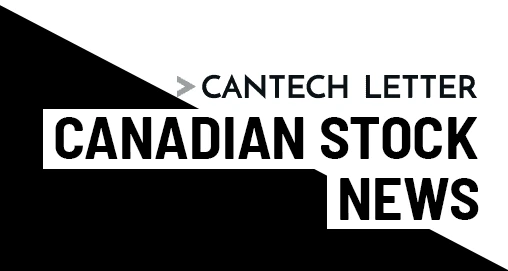

The barometric pressure has fallen, but only slightly. The wind has picked up just a bit. Everything still appears to be relatively calm for developers of smartphone applications, commonly known as apps, but make no mistake; there is a storm of litigation gathering on the horizon.
Two factors in particular should make investors into companies whose primary asset is an app at least somewhat wary. The first, although admittedly counterintuitive, is the meteoric expansion of the apps consumer base. The second is a by necessity “first to market” attitude amongst developers. As the last three years have demonstrated, the world of apps is moving at light speed and time to market, perhaps more than in any other business, can make or break a developer’s chances of success.
Since Apple opened the first apps store in July 2008, the market for these now indispensable bits of code has expanded with remarkable speed. According to Connecticut based research firm Gartner Inc., “…worldwide mobile application store downloads are forecast to reach 17.7 billion… in 2011, a 117 percent increase from an estimated 8.2 billion downloads in 2010.” By the end of 2014, Gartner forecasts that approximately 185 billion applications will have been downloaded from app stores.
A larger market means more consumers for apps. This, in turn, means more revenue for the companies that develop and sell them, not to mention more companies in general. In other words, app makers are getting deeper pockets and, consequently, are becoming a more appealing target for plaintiffs. The plaintiffs in such matters tend to be, in the case of privacy actions, the end users of the apps or, in the case of infringement actions, companies or individuals which claim the relevant intellectual property rights in dispute.
It is now well documented that many apps transmit user information, without a user’s consent, to third party advertisers. Apps that share personal information about an end user are known in the industry as “leaky” apps. The Wall Street Journal, in an investigative report, found that leaky apps were sharing personal data about users “widely and regularly” with third parties. It is no coincidence that following the publication of this investigative article there has been a dramatic upsurge in privacy related class action lawsuits against apps makers in the United States. Previously, such lawsuits have been more targeted at service providers, such as Apple or Google. However, recent class action privacy lawsuits have also begun to name apps makers as defendants.
In addition to privacy actions, apps makers are also beginning to run into legal problems in connection with infringing activity of third party intellectual property rights (e.g. patent, copyright and trade-mark rights). The first step in many such infringement claims is for the third party to send a cease and desist notice to the relevant service provider. In January 2011, Google began releasing documents in relation to such notices on the Android Market to the “Chilling Effects Clearinghouse”, a collective of law school clinics and the Electronic Frontier Foundation. The results for the month of February 2011 reveal 206 infringement complaints to Google from third parties, which were almost evenly divided between copyright and trademark issues. Approximately half of the complainants in such notices were large corporate entities such as Nintendo, Facebook, etc.
It would be an overstatement to suggest that the Google data is indicative of the apps industry as a whole. It is not. However, it does suggest the existence of a certain constituency of apps makers that has a higher risk tolerance for lawsuits or, in fact, may be oblivious to such legal risk. Numerous recent examples of legal action against (and, some cases, by) apps makers also supports this idea.
In the case of iBird, a iPhone app popular with birding enthusiasts, the defendant app maker is alleged to have used copyright protected bird sounds. In another case, the designer of the “Talking Carl” app sued his employer for copyright infringement for an “ugly ripoff” of his character. Arlington, Texas based Omnionic removed its app “Island Settlers” from the Android Market following threat of a lawsuit from a German company alleging ownership of a similar game. And, Hottrix, the maker of iBeer, has been involved in more than one high profile court action, including a recent claim by Hershey (and counterclaim against Hershey) for a declaratory judgment of non-infringement in relation to Hershey’s iMilk app.
Lawsuits, like those mentioned above have the potential to destroy a company, particularly during the earlier stages of its development, leaving investors holding the bag. In fact, even the threat of a lawsuit can often stop a smaller apps maker dead in its tracks.
The risk of litigation, even though it may be an increasing trend, does not mean that investors should avoid investing in apps makers. On the contrary, many such companies offer tremendous opportunities for investors. It does, however, mean that investors should approach their investment in the apps sector with a healthy dose of legal due diligence.
___________________________________________________________________________________
___________________________________________________________________________________
_______________________________________________________________________________________
 Timothy W. Murphy, LL.M, is the principal of Murphy & Company, a business law practice based in Vancouver, Canada, that delivers comprehensive legal advice in the technology and finance sectors. Mr. Murphy articled with a leading national law firm, has international experience with Freshfields Bruckhaus Deringer LLP in Paris, France, and, until September 2010, acted as in-house legal counsel for a multinational software company. Mr. Murphy holds a master’s degree in law from McGill University.
Timothy W. Murphy, LL.M, is the principal of Murphy & Company, a business law practice based in Vancouver, Canada, that delivers comprehensive legal advice in the technology and finance sectors. Mr. Murphy articled with a leading national law firm, has international experience with Freshfields Bruckhaus Deringer LLP in Paris, France, and, until September 2010, acted as in-house legal counsel for a multinational software company. Mr. Murphy holds a master’s degree in law from McGill University.
For more information, or to contact Murphy & Company, email: tmurphy@murphyandcompany.ca or call (604) 360-7014.
Visit his website at www.murphyandcompany.ca
Leave a Reply
You must be logged in to post a comment.




 Share
Share Tweet
Tweet Share
Share




Comment